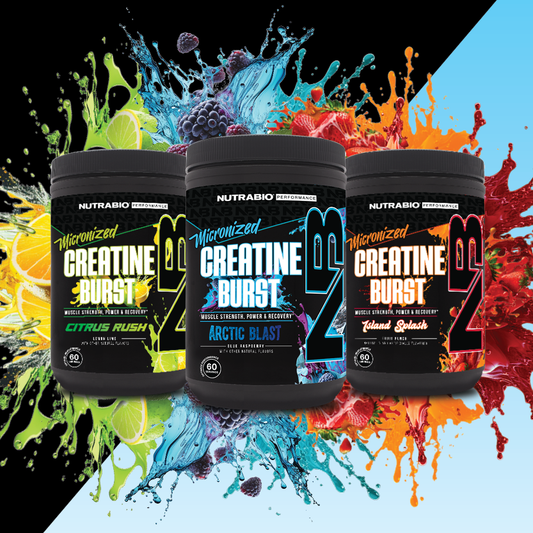EndurElite Chief Endurance Officer Matt Mosman, MS, CISSN, CSCS discusses the reasons why runners, cyclists, and other endurance athletes slow down with age. Also discussed are strategies to combat age-related decreases in performance.
Full Video Transcription:
Good morning Family of Fast. Matt Mossman, the chief endurance officer over at EndurElite.
Have you ever wondered why as an endurance athlete, why you get slower as you age?
That is the million-dollar question we are gonna answer today. So as you get to be 40 and 50, you might notice yourself slowing down a little bit more and maybe not being able to recover and you're wondering what the heck is going on?
Well, I'm going to tell you the perfectly good reasons why this is happening and what you can do about it. So let's just get right into it.
Basically, there are two reasons why you get slower as you age.
Reason #1: Loss of Muscle Strength Due To Sarcopenia
The first is the loss of muscle strength from two different things. One, it occurs from changes in the nervous system, and then, two, and the major cause of this loss of muscle strength is something called sarcopenia.
What is sarcopenia?
Sarcopenia is basically the loss of muscle mass as you age. There's not a darn thing you can do to prevent it 100%. But there are some things you can do to, kind of, slow it down, which we'll get into later.
What Causes Sarcopenia?
So the sarcopenia is caused by two different things.
- It's caused by the loss of muscle fibers and
- Also a decrease in the muscle fiber size.
But the majority of that loss from the sarcopenia comes from the actual loss of muscle fibers and this happens for various reasons. It can be from inflammation, damage from free radicals, and especially decrease in anabolic hormones like testosterone.
Now, what you can expect for loss of muscle mass is after the age of about 50, you lose about 1% to 2% of muscle mass per year.
So you could see between the ages of 50 and 80, you can lose a heck of a lot of muscle mass unless you do some things that can slow that down, again, which we'll talk about here in a little bit.
So that's the first reason why you get slower as an endurance athlete as you age is based on that loss of muscle strength attributed to the sarcopenia.
Reason #2: Decrease In VO2 Max
Now, the second reason why you get slower as an endurance athlete as you age, man, isn't it frustrating, is basically due to a decrease in VO2 max.
Why VO2 max decreases with age
VO2 max decreases with age due to a decrease in cardiac output, which is caused by a decrease in maximum heart rate and maximum stroke volume, which is also caused by a decrease in capillary density and mitochondrial density as well.
So basically, just how well you are able to saturate oxygen levels through the tissue is all decreased because of all these factors.
So that's the second cause of why you get slower as you age.
How To Slow Down Sarcopenia
Now that we know that, what the heck can you do as an older endurance athlete to, kinda, slow down some of these decreases in endurance performance as you age?
Start a strength training program to prevent muscle loss
Well, for the loss of muscle strength, and you guys probably already know this, the number one thing you wanna do, like, right now, like, as of yesterday, is starting to strength-train at least two to three days a week to, kinda, help keep those muscle mass and muscle fiber levels up so they're not just basically getting annihilated by sarcopenia when you hit the age of 40 or 50.
Eat more protein as you get older
Research has demonstrated that older endurance athletes need approximately 1.6 - 2 grams of protein per kilogram body weight daily to optimize muscle repair and recovery and to reduce the loss of muscle mass.
How To Keep VO2 Max Elevated
Now, the second thing you can do as it relates to VO2 max is, you know, be smart about your training.
Follow a structured training program and take recovery days
That involves, you know, using training principles like, say, if you're a runner and you're doing, you know, long slow distance, you're doing intervals, lactate threshold sessions to keep your VO2 max up.
But most importantly, as you age, you wanna be smart about your recovery days so you don't end up with an overuse injury and then your VO2 max really plummets really quickly.
We want to avoid that at all costs.
So those are, kinda, three ways you can, kinda, slow down those decreases in performance as you age. Now, there's nothing you can do to completely stop it. And again, this is just, kinda, slow down the decreases in performance as you age.
So, that is all I have today on how you can stop from getting slower or at least somewhat slower as you age. If you want other videos or information like this, head on over to the EndurElite blog at www.endurelite.com, head over to our Family of Fast Facebook group, our head onto one of our social channels on Facebook, Instagram, all that other fun stuff. And until next time, Family of Fast, stay fueled, stay focused, and stay fast.
Matt Mosman (MS, CISSN, CSCS) is a research scientist, endurance athlete, and the founder and Chief Endurance Officer at EndurElite. Matt holds his B.S. in Exercise Science from Creighton University and his M.S. in Exercise Physiology from the University of California. Matt and his family reside in Spearfish South Dakota, where they enjoy running, mountain biking, camping, and all the outdoor adventures Spearfish has to offer.


